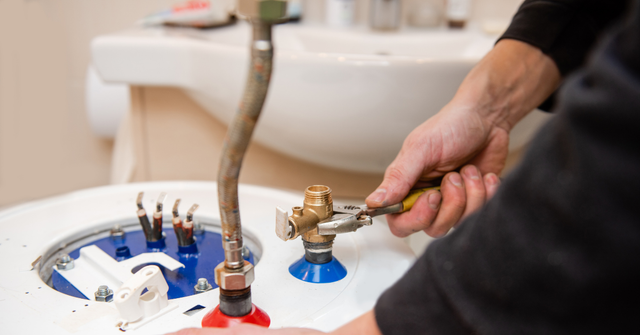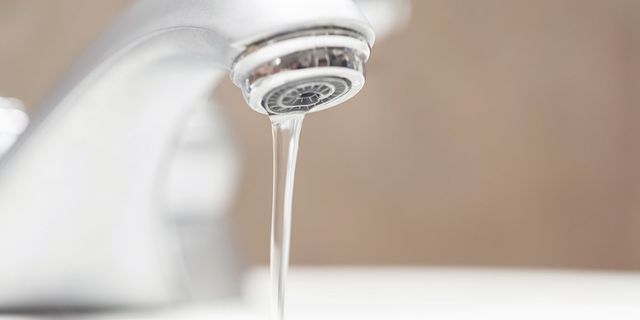Step-by-Step Ways for Solving Low Water Pressure in Your Home
Step-by-Step Ways for Solving Low Water Pressure in Your Home
Blog Article
How do you really feel in regards to 10 Reasons for Low Water Pressure in Your House?

Low water pressure in your house can be a discouraging issue, affecting every little thing from bathing to washing recipes. If you're experiencing weak water flow, there are numerous possible causes and remedies to discover. In this guide, we'll talk about typical reasons for low water pressure and sensible steps to deal with the issue efficiently.
Introduction to Low Water Stress
Low tide stress takes place when the circulation of water from your faucets, showers, and various other fixtures is weak than normal. This can make everyday tasks extra tough and less effective. Recognizing the reasons for low tide pressure is important to locating the right option.
Usual Root Causes Of Low Tide Stress
Faulty Stress Regulators
Stress regulators are accountable for maintaining consistent water pressure in your house. If they malfunction, it can cause low water pressure or irregular circulation throughout your home.
Community Water Supply Issues
Sometimes, the problem exists outside your home. Municipal supply of water concerns, such as main line leakages or upkeep job, can temporarily minimize water stress in your area.
Pipe Obstructions
Gradually, pipelines can end up being clogged with mineral deposits, sediment, or particles, restricting the circulation of water. This is a typical problem in older homes with galvanized steel pipelines.
Corrosion
Rust within pipelines can lead to leaks and decreased water pressure. Rust buildup can tighten water flow, especially in aging plumbing systems.
Exactly How to Identify Low Tide Stress
Checking Pipelines
Evaluate noticeable pipelines for indicators of leakages, rust, or obstructions. Take notice of any kind of uncommon audios, such as knocking or rattling pipelines, which could indicate issues within the plumbing system.
Consulting with a Plumber
If you're incapable to identify the root cause of low water stress, consider working with an expert plumber to perform a thorough evaluation. They can identify underlying concerns and advise proper services.
Inspecting Faucets and Fixtures
Beginning by checking the water stress at various taps and fixtures throughout your home. If the concern is isolated to details areas, it may show localized problems.
DIY Solutions to Deal With Low Water Pressure
Flushing Hot Water Heater
Debris buildup in the water heater can restrict circulation and lower efficiency. Flushing the storage tank regularly assists get rid of debris and keep optimum efficiency.
Examining Pressure Regulator
Ensure that the pressure regulator is operating appropriately. Readjusting or changing the regulator can assist bring back proper water pressure throughout your home.
Cleansing Aerators and Showerheads
Natural resources can collect in aerators and showerheads, minimizing water flow. Remove and clean these parts regularly to boost water pressure.
Clearing Up Clogs in Pipeline
For small blockages, attempt using a plumbing serpent or chemical drainpipe cleaner to clear blockages in pipelines. Be cautious when using chemicals and follow security guidelines.
When to Call a Specialist Plumber
If do it yourself initiatives fail to resolve the problem or if you believe significant plumbing issues, it's ideal to seek support from a qualified plumber. They have the experience and devices to address complex problems safely and properly.
Safety Nets to Keep Water Stress
Mounting a Stress Booster
Take into consideration setting up a pressure booster pump to enhance water pressure in locations with continually reduced circulation. This can be particularly useful for multi-story homes or buildings with high-demand components.
Surveillance Water Usage
Be mindful of water use routines and avoid ill-using the plumbing system. Basic changes, such as astonishing showers and laundry lots, can aid preserve adequate water pressure.
Normal Maintenance
Set up routine upkeep for your plumbing system to prevent problems such as rust, leakages, and clogs. Attending to small problems early can assist stay clear of more considerable fixings later on.
Verdict
Dealing with low water pressure can be irritating, yet identifying the underlying reasons and executing proper solutions can bring back optimal flow throughout your home. Whether it's cleaning up aerators, checking pipelines, or seeking advice from a plumber, taking aggressive actions can make certain a constant supply of water for your day-to-day requirements.
FOUR WAYS TO FIX LOW WATER PRESSURE NOW
Turning on a shower or faucet only to find the water comes out in a sad, slow drizzle is never a good feeling. How exactly are you supposed to wash a pan or take a quick shower when it takes 10 minutes just to rinse off a little soap? The good news is that when your water pressure is bad, there's always a cause: typically one that can be easily fixed. Here are some of the most common causes of low pressure and what you can do to fix the issue:
DEBRIS AND MINERAL DEPOSIT BUILDUPS
If you notice low water pressure from just one or two of the fixtures in your house, the problem likely has to do with debris buildup. Water is full of minerals and other debris, all of which can accumulate in your pipes and on your fixtures. This can cause a blockage that affects how much water flows through. To fix this, try filling a small plastic bag with white vinegar, and use a rubber band to hang it around your showerhead or faucet. Let the head of the fixture soak for a few hours, and the vinegar should loosen the deposits.
WATER LEAKS
Leaks are another common cause of low water pressure. If water is flowing out of your plumbing through a hole or crack before it can reach your fixture, the pressure coming out of the faucet or showerhead will be lower. A plumbing professional is your best bet for finding and repairing a leak in your water supply pipes.
Leaks are another common cause of low water pressure. If water is flowing out of your plumbing through a hole or crack before it can reach your fixture, the pressure coming out of the faucet or showerhead will be lower. A plumbing professional is your best bet for finding and repairing a leak in your water supply pipes.
A VALVE ISSUE
If you have low water pressure throughout your home, check your main shut-off valve to make sure it's completely open. You may also want to see if there's a pressure-reducing valve installed. If there is, have a plumber help you adjust the settings to get the pressure you're looking for.
OTHERS USING WATER
Believe it or not, your low water pressure could be caused by your neighbors. If you notice low pressure at certain times of day, it may be because you and the people living next to you have similar schedules - when everyone is showering at the same time, the pressure will be lower in every home. Low pressure throughout the neighborhood may also be caused by an issue with your municipal water supply. If that's the case, call the supplier to see if they're working on the issue.
https://www.rotorooter.com/blog/water-leaking/low-water-pressure-fixes/

I discovered that page about 10 Reasons for Low Water Pressure in Your House while looking around the web. Are you aware of somebody who is fascinated by the topic? Take a moment to promote it. Many thanks for being here. Kindly come by our website back soon.
Call Today Report this page